NI's new record temperature could be exceeded this week, says Met Office
- Published
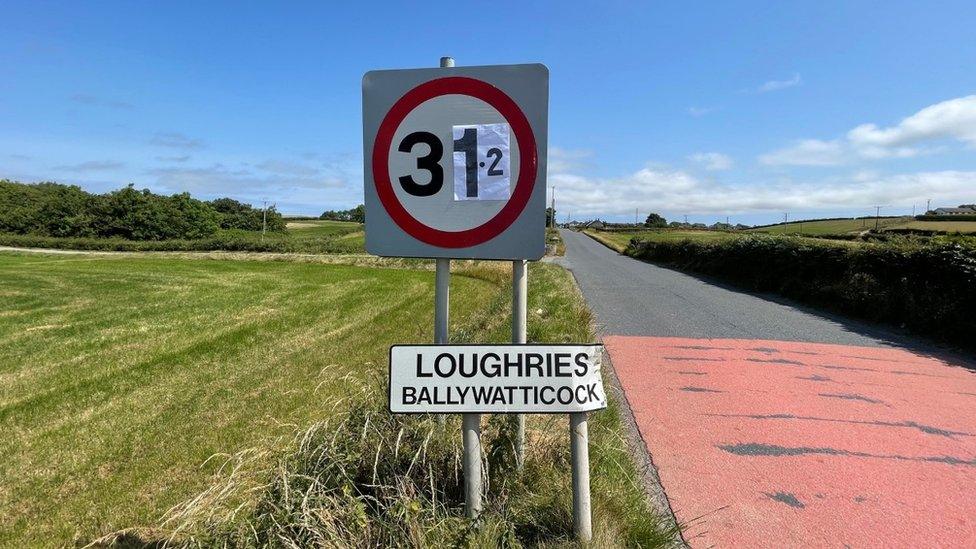
Ballywatticock has marked its moment in the sun after what appears to be a new high temperature for Northern Ireland
Northern Ireland's new highest recorded temperature could be exceeded this week, the Met Office has suggested.
The hottest day on record was provisionally reported on Saturday when the temperature in Ballywatticock, near Newtownards in County Down, hit 31.2C.
"It is possible the [provisional] record may be challenged again on Wednesday or Thursday," said John Wylie of the Met Office.
"This time it is more likely across central or western parts."
The previous high was 30.8C set in the summers of 1976 and 1983.
'Footprint of climate change'
Mr Wylie said that Saturday's temperature record was "quoted as provisional until the site has been checked by the Met Office".
"This value will then be compared to other maximum temperatures nearby with the prevailing weather situation," he said.
"At the moment we're not seeing anything which might cause us to suspect that value."
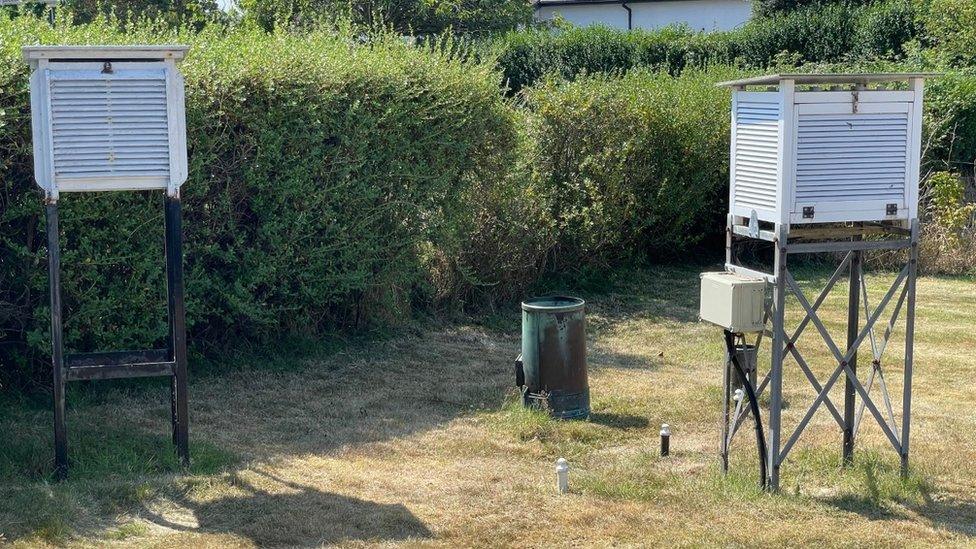
An official inspection of the Ballywatticock weather station will take place on Tuesday
The checks were standard practice, he said, with a small group of people having to assess the information and decide whether the temperature "can be accepted as a new regional maximum".
Mr Wylie said the "footprint of climate change" was being seen "all over our weather patterns now all over the northern hemisphere".
"These extreme events where temperatures might have hit 30C in Northern Ireland - originally we'd have been seeing that every seven years," he said.
"In the last while that has come down to every three or four years.
"These events are becoming more extreme and more frequent."
'Record skewed by ice-cream van'
There are about 30 weather stations in Northern Ireland, which include a mixture of automatic and manual recording.
Donald Ferguson, the Met Office's regional network manager for Northern Ireland, is due to inspect the station at Ballywatticock on Tuesday.
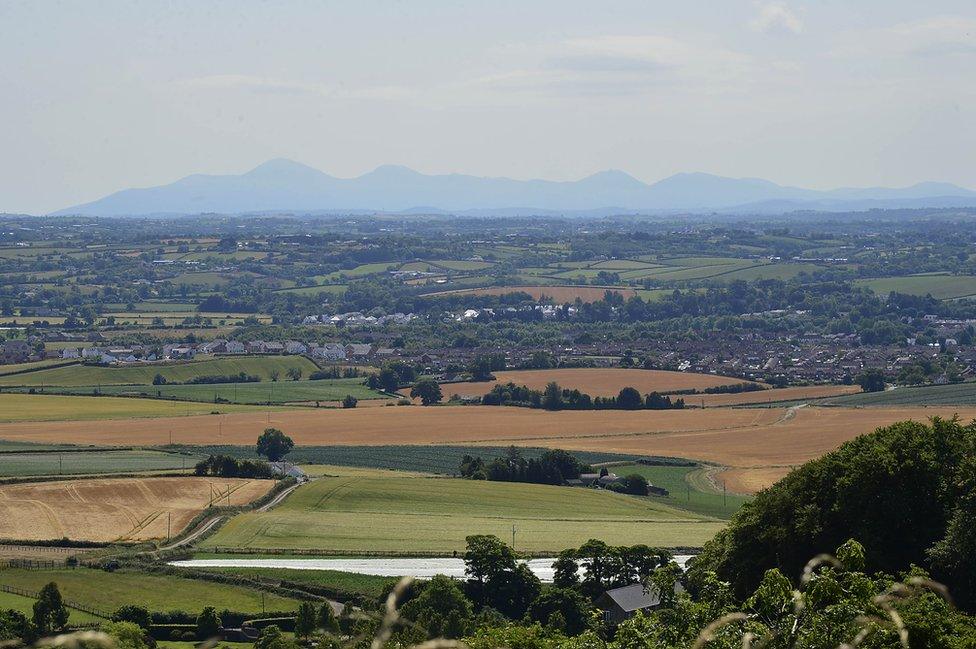
Temperatures in Northern Ireland could surpass 30C again this week, says the Met Office
His inspection was an important part of the record verification process, he said.
"I have to check the equipment is fully functional and compare it against my reading on my inspector-standard instrument," he added.
"I also have to check the exposure of all the instruments, for example how much shelter the instrument [at Ballywatticock] has - not too much and not too little.
"This is the first part of the process - hopefully we will have official confirmation within a week.
"Why we have to check is that, for example there were record temperatures reported in Strathclyde Park near Motherwell a few years ago and when they went out to check it was an ice-cream van pumping out heat across the thermometer."
'Another hot week'
Mr Wylie, who is Met Office weather advisor for Northern Ireland, said he believed several factors had combined to produce the high temperature reading at Ballywatticock.
Killowen, also in County Down, had hit 29.9C, before that figure was overtaken later in the day.
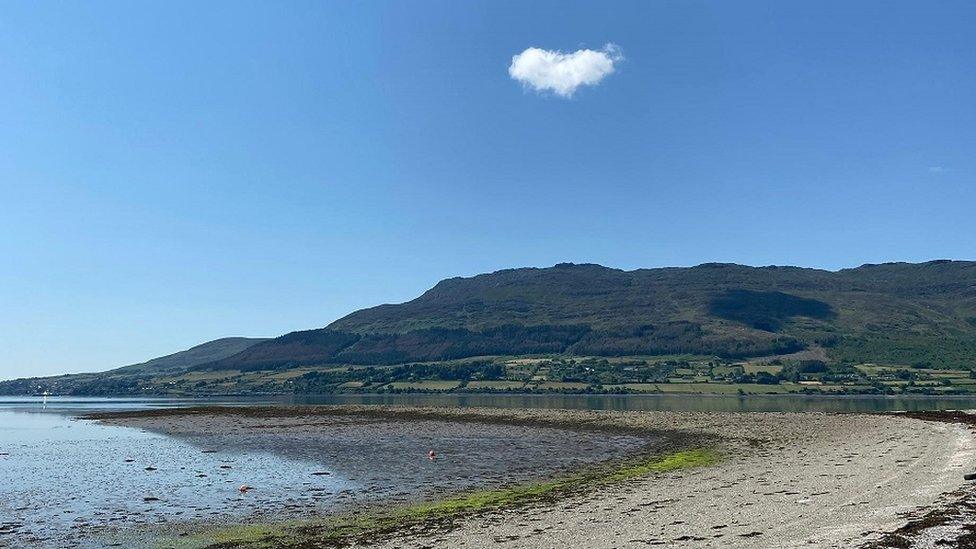
Killowen by Carlingford Lough also had high temperatures on Saturday
"It was a very hot day - the reason we got it is we have been sitting under high pressure for several days," said Mr Wylie.
"The temperatures had been rising slowly day on day and with light winds, unbroken sunshine and extremely dry ground conditions.
"Conditions were perfect for unusually high temperatures.
"We are less than a month past the summer solstice and the sun is very high in the sky, which means we are getting maximum benefit from solar heating.
"All of the conditions came together at the right time and right proportions."
This week was going to be another hot week, he said.
"Temperatures [will be] rising again from Tuesday to Thursday and it will be Friday or the weekend before they return to more normal weather for Northern Ireland."
Related topics
- Published17 July 2021

- Published16 July 2021
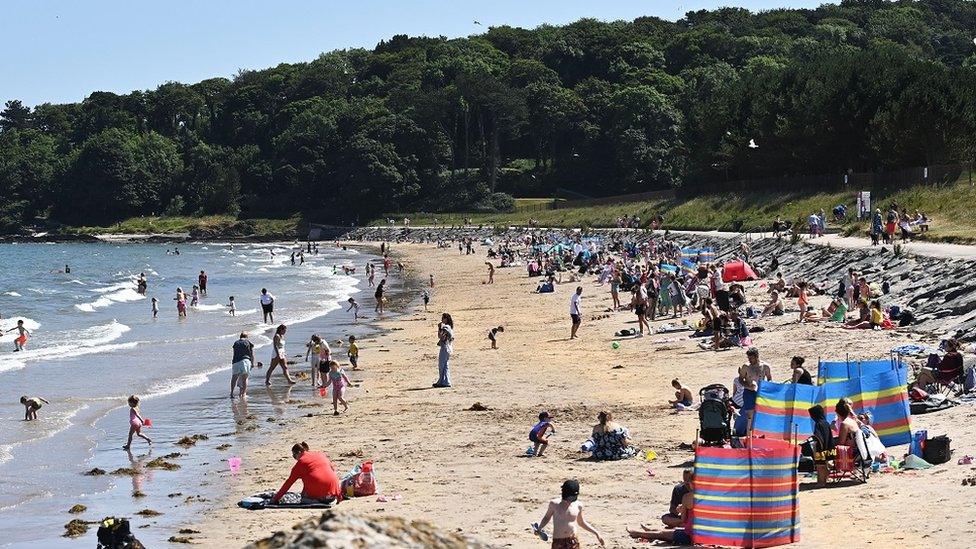
- Published15 January 2020
